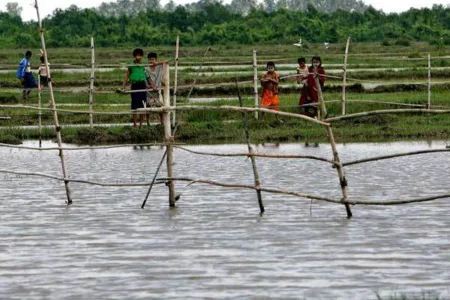The political economy of transitions: analysis for change

UNDP Oslo Governance Centre (OGC) and the Norwegian Peacebuilding Resource Centre (NOREF) jointly organised a conference on the political economy of democratic transitions, with a focus on understanding models, policies and processes underpinning economic transformation and the renegotiation of the social contract. The conference discussed four critical questions related to the political economy of transitions:
1. What are the key challenges of economic transformation in the short, medium and long run, and what can be done to consolidate sustainable political and economic reforms?
2. In countries where there is little tradition of dialogue and where state–society relations have been marred by distrust, what is the role of civil society in renegotiating the social contract, and how can an inclusive dialogue space be created to transform street protests into viable collective action?
3. In countries with a transitional civilian government and dejure or defacto military tutelage, what strategies can be employed to depoliticize and legitimize state institutions?
4. What are the challenges facing policy-oriented centres and how can these be met in order to (re) build and support the institutionalisation of their strategic advice?
Three countries were chosen as representative of transitions conducted in Latin America and Asia since the mid1980s – Brazil, Chile and Indonesia – with a view to identifying key challenges and opportunities for the ongoing transitions in Egypt, Tunisia and Myanmar. The choice of these case studies has been informed by the fact that these six countries share a number of features which have determined the transition process and its outcomes – in particular a political economic situation with destabilising social consequences, a military with a major political role and a very unequal society. The time factor has also played a role; comparing experiences that started almost 30 years ago with more recent experiences and ongoing ones makes it possible not only to analyse transitions in their initial stages, but also to take stock of later evolutions and reorientations over time, as the context and actors change.
This report provides an overview of the key points of debate in the different sessions. The main recommendations and suggestions that arose have been summarised in the Executive Summary:
Further reading:
The Political Economy of Transitions: Comparative Experiences
(UNDP, 18 March 2013)
The Political Economy of Transitions: Governance Assessments and Measurements
(UNDP, 18 March 2013)